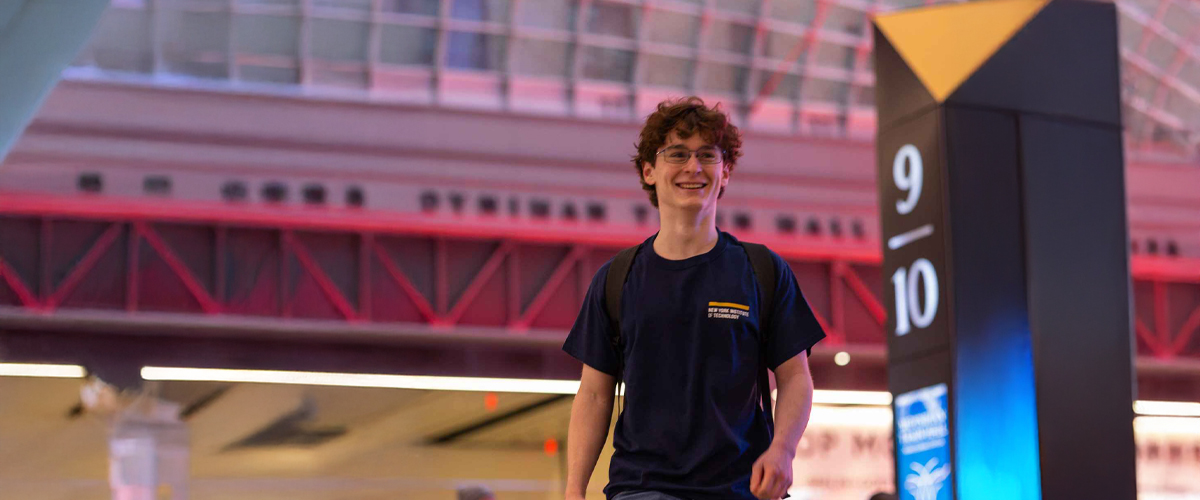
Hands-On Engineering
Pictured: As a member of New York Tech’s chapter of the American Society of Mechanical Engineers, Tyler Hradek, a mechanical engineering student, traveled to Washington, D.C., last summer to tour the facilities at NASA.
As a child, Tyler Hradek dreamed of growing up to be just like his father, with a career in computer science. He applied to New York Tech’s computer science program and was excited to dive into his studies—until one summer afternoon, a video game changed everything.
“I never liked coding,” Hradek says. A tough hurdle to jump if you’re a computer science major. Then one day, while playing the popular construction and management simulation game Factorio, he realized, “I loved engineering more than computer science.”
Hradek changed his major to mechanical engineering with an aerospace concentration, which he cites as one of the best decisions he’s ever made, and his involvement in the Entrepreneurship and Technology Innovation Center (ETIC) on the Long Island campus has been fueling his love for designing and creating things with his hands ever since.
“I became interested in the ETIC simply because they did cool projects,” the College of Engineering and Computing Sciences student says. His first ETIC project, the impact-resistant glove, showcased his skills well enough to secure his spot as an employee in the high-tech hub. This type of glove typically puts cushioning on the glove’s top to protect human hands from impact injuries, but Hradek outfitted a glove with a palm guard and three different types of rings to instead distribute the force around the hands and fingers into the ground.
Hradek has been involved in several ETIC projects, including prototypes created through the university’s contract with the NASA Technology Transfer Expansion (T2X) initiative. During a demonstration in December at the NASA Assistive Technologies Startup Summit, he showcased the Portable Unit for Metabolic Analysis (PUMA)—a hypoxia-detecting apparatus previously built by now-alumnus Brandon Castellano (B.S. ’25) but replicated by Hradek as his first “official” ETIC project.
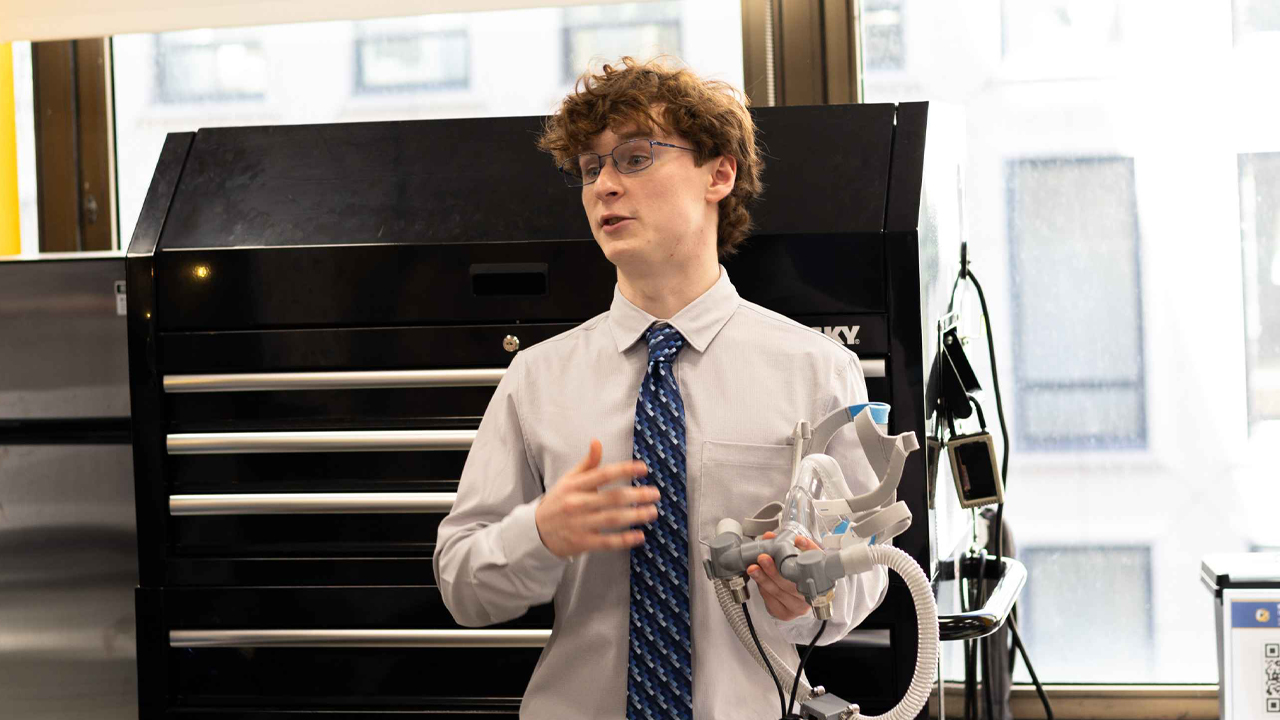
He also showed off his next major ETIC creation, the smart case, that the team uses to carry and deliver their prototypes. As this was the ETIC team’s first attempt at building a standardized shipping case, Hradek meticulously drew up plans and went through redesigns to ensure that everything was just right. Further, he made videos on proper assembly procedures for younger students to follow—this comes as part of the ETIC’s partnership with local high schools to teach STEM concepts to aspiring student engineers.
He has worked his way up to ETIC project manager, and Hradek is now overseeing the production of a spacesuit robo-glove and a freeze-resistant hydration system. While the gloves are meant to be used in space to improve astronauts’ hand use, they can also be used in the healthcare field to help those with arthritis. The hydration system is designed to keep fluids in a liquid state for those working in extreme conditions, including temperatures as low as negative 40 degrees Celsius.
In April, Hradek and his ETIC colleagues will travel to Albany, N.Y., for the New York State Industries for the Disabled’s 11th annual Cultivating Resources for Employment with Assistive TEchnology (CREATE) Symposium. Last year, the ETIC student workers received first- and second-place prizes—Hradek hopes to continue the legacy with their “personal forklift” project.
Outside of the ETIC, Hradek is involved with New York Tech’s chapter of the American Society of Mechanical Engineers, which offers its student members benefits like career guidance, networking opportunities, and off-campus experiences. Last summer, the group was invited to Washington, D.C., for a tour of NASA’s facilities, where they met with staff, witnessed manufacturing and testing areas, and saw a prototype mirror of the James Webb Space Telescope. With his aerospace degree concentration, he says the visit was nothing short of incredible.
While Hradek still has a few years before earning his bachelor’s degree, he already has his sights set on the future. The aspiring professional project manager says he wants to be on a team involved in complex problems, working with his hands to create solutions he can be proud of. Someday, he thinks he may return to the classroom to earn a degree in programming.
“You will not regret this major if it’s something you are passionate about, but mechanical engineering is not for the faint of heart,” Hradek advises. “The courses are challenging, but at the end of the day this field is one of the most rewarding.”
More News
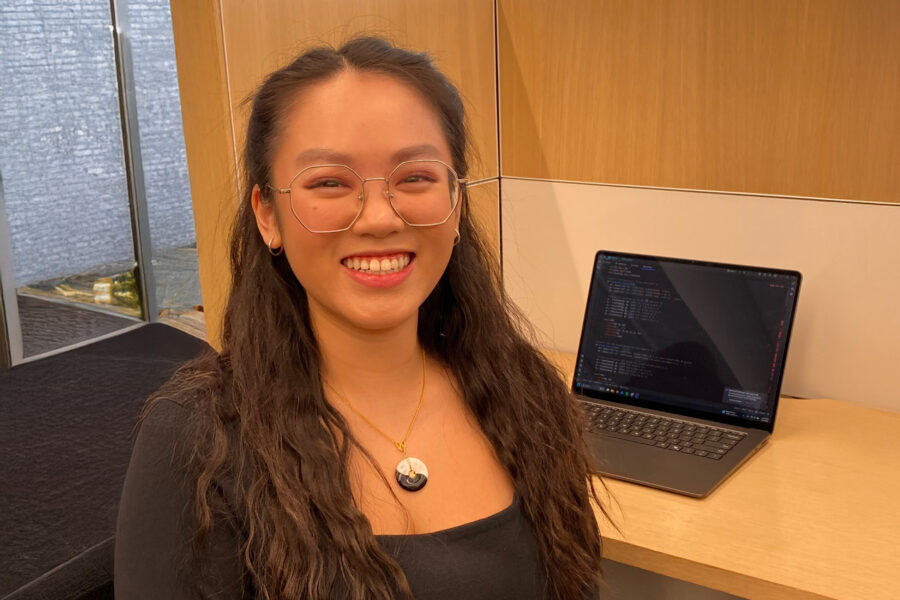
Making an Impact
As an ETIC engineer, computer science student Angelina Do is working on a project in partnership with a former NBA star aimed to help children who stutter.
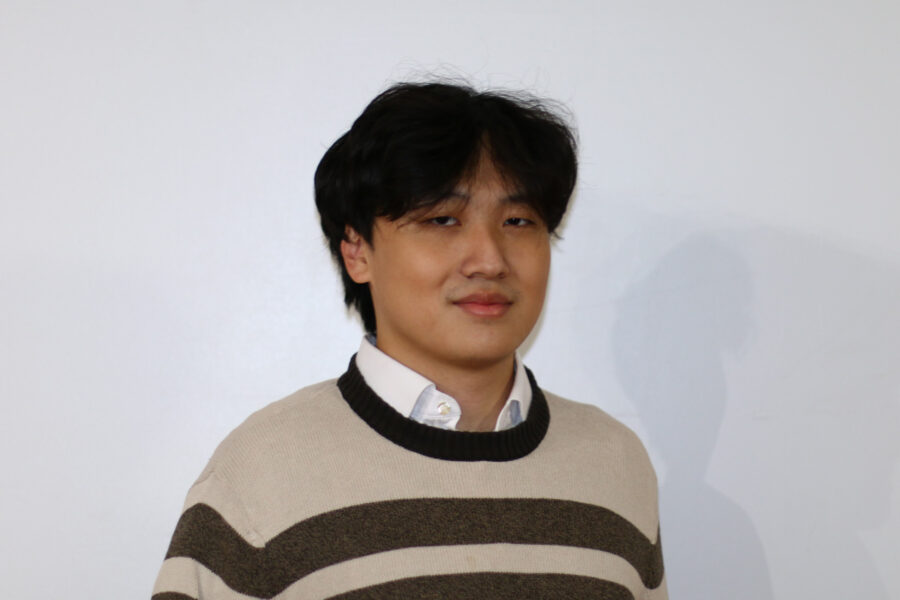
Beyond the Human Machine
Biology student Justin Tin seeks to understand what’s running “under the hood” in the human body so he can someday help prevent patients from suffering physiological changes.
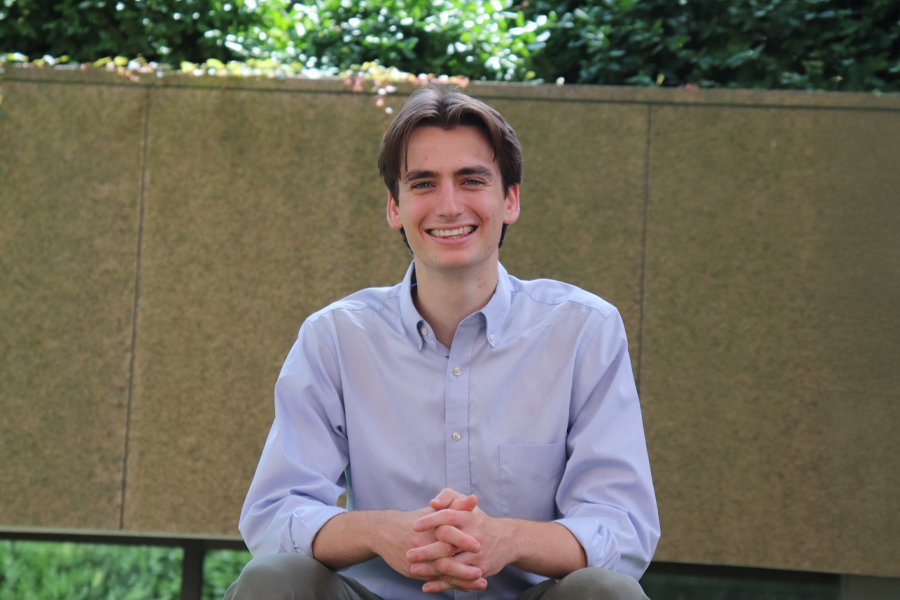
Finding His Balance
Noah Hoonhout’s piece about navigating life as a medical student was published to a Substack with more than 100,000 readers.
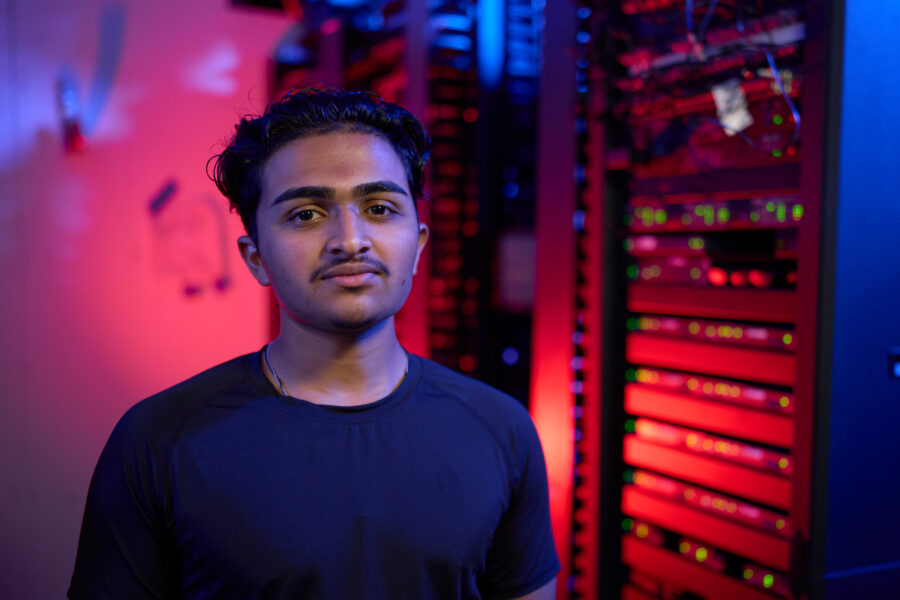
Intentional Technology
Computer science student Tejas Attavar is putting his tech skills to altruistic use.
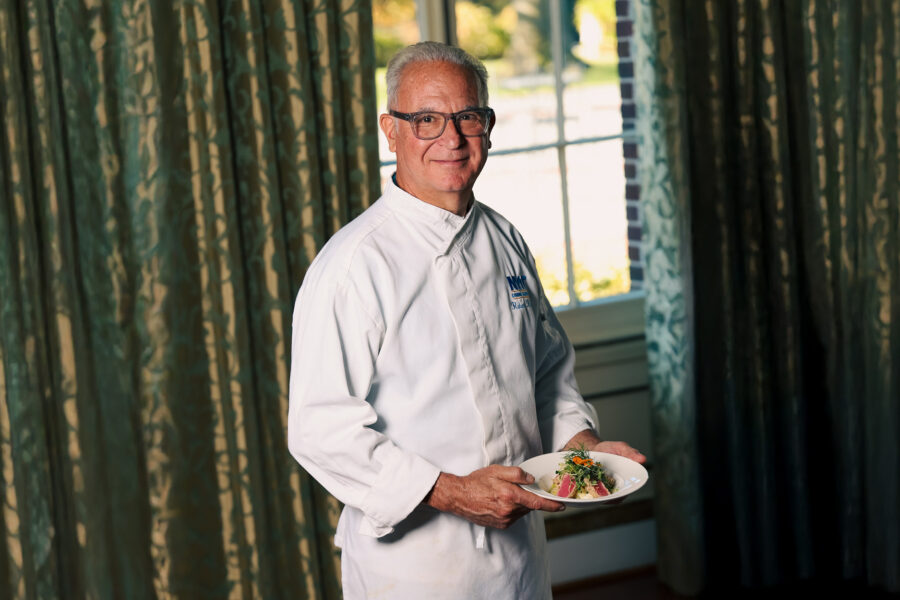
The Force Behind the Food
Director of Dining Services Robert Rizzuto keeps New York Tech fed as he oversees NYIT de Seversky Mansion and the campus dining program on Long Island and in New York City.
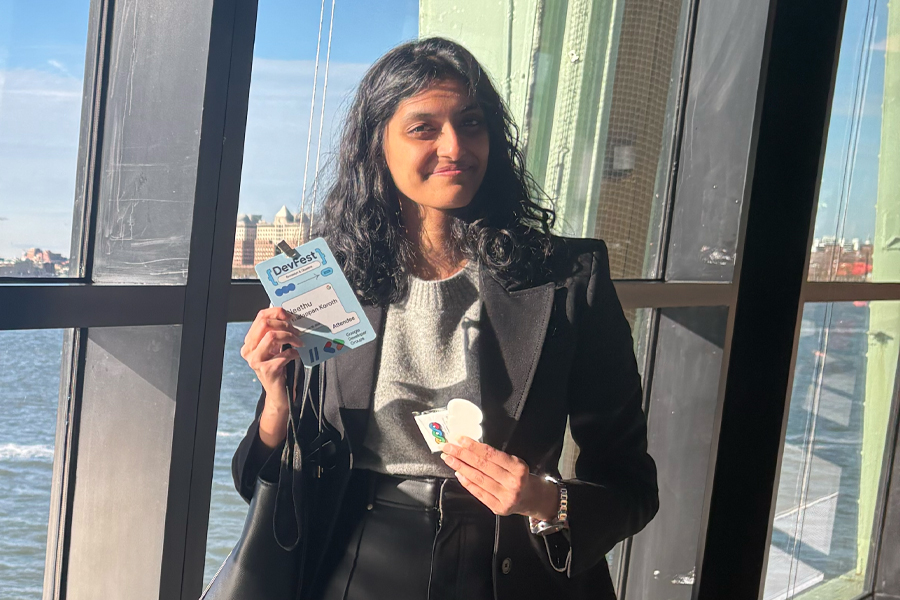
Her World Through Code
Graduate computer science student Neethu Thalappan Koroth thrives in her field of study while becoming involved in several on-campus projects to deepen her expertise.